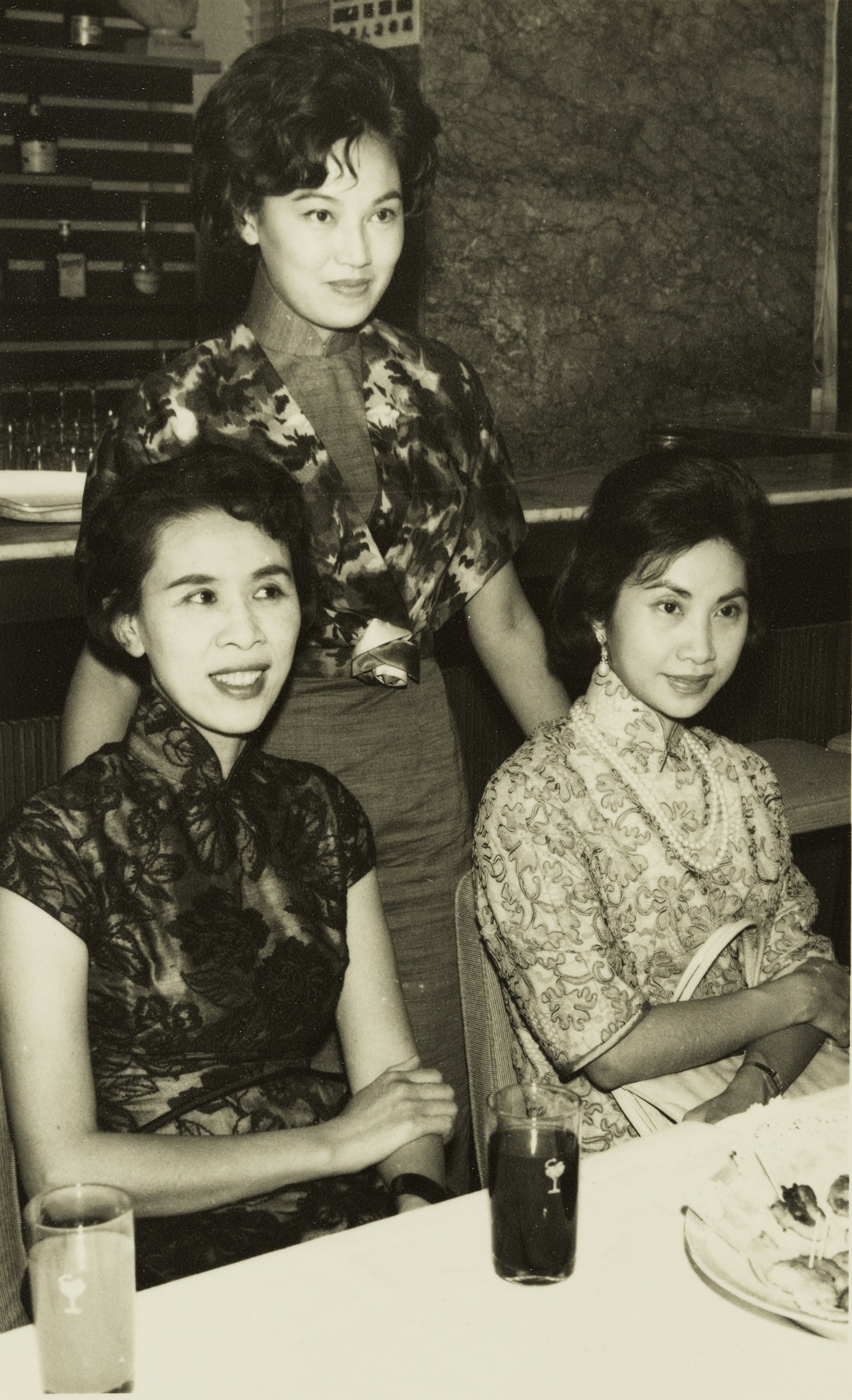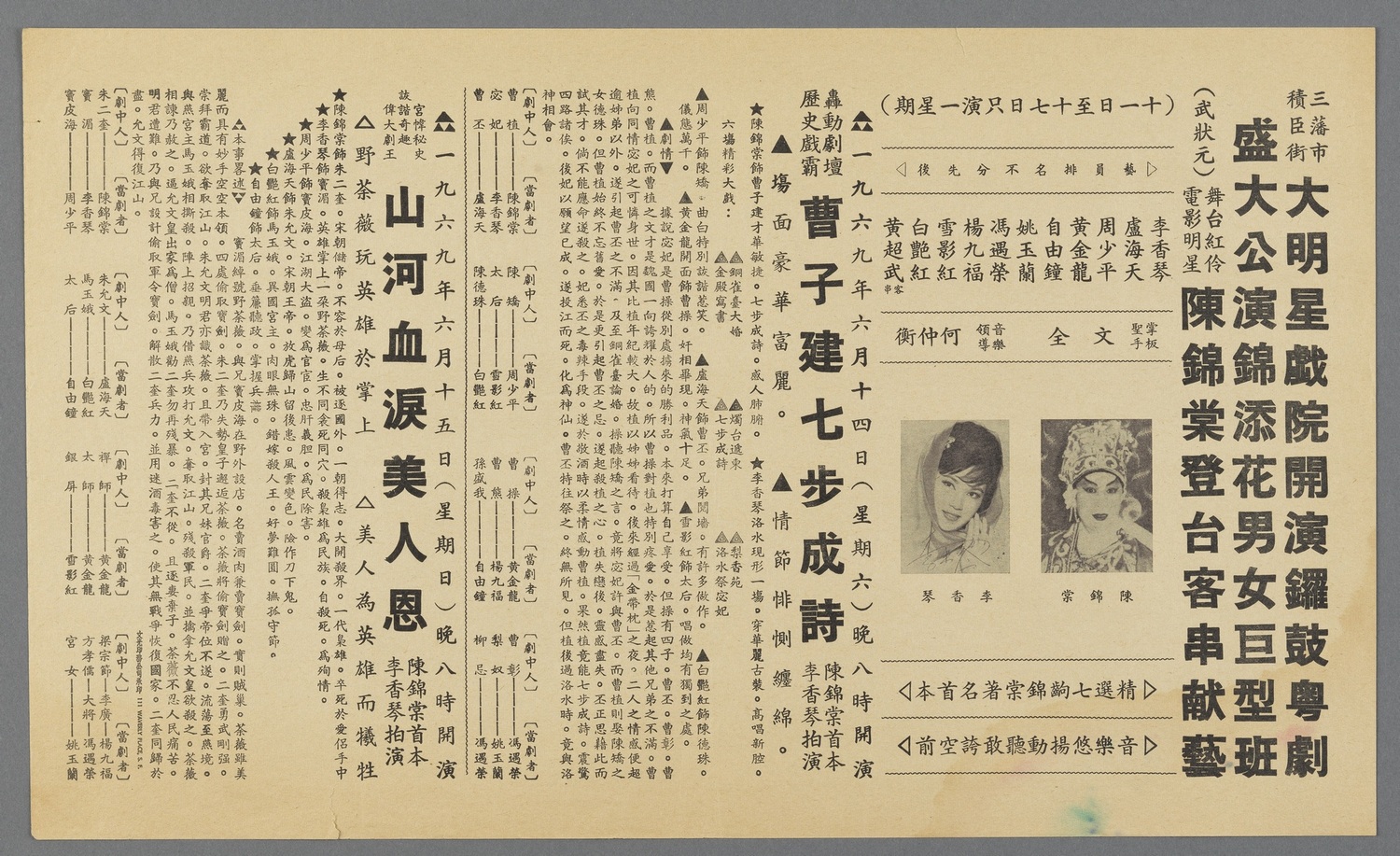The Leading Actress, Perfidious Concubine and Beloved Grandma – Lee Hong Kum's Artistic Career
Born in 1932 and originally named Lee Shui Kum, Lee Hong Kum spent her early childhood in Macao before moving to Hong Kong, where she enjoyed a long and successful career in Cantonese opera and films. She is also widely regarded as one of Hong Kong's most popular television drama actresses.
Lee acquired a passion for Cantonese opera as a young girl, when she developed a particular admiration for actress Yam Kim Fai. The Japanese occupation of Hong Kong (1941-1945) saw many Cantonese opera troupes relocate to Macao, and this provided Lee with greater opportunities to enjoy her favourite traditional Chinese art form.
Lee first started to learn Cantonese opera in 1946 under the instruction of cross-dressing actor Siu Ang Ang and renowned actress Au Mo Fan, and she subsequently studied under Tam Sau Chun and Lo Hoi Tin. In 1948, she took part in a tour of Guangzhou by the Sun Moon Star Opera Troupe, and she later joined the Kam Tim Fa Opera Troupe led by Chan Kam Tong. By the middle of the 1950s, she had already begun to establish herself in Hong Kong's Cantonese opera circles.
Through her efforts, Lee was gradually promoted from supporting roles to second lead actress, before she was finally given the principal female role during a tour of Singapore and Malaysia. During her early career, Lee was a member of the Hing Hung Kai, Kui Hung Tin, Chung Sun Sing, and Golden opera troupes, and she frequently worked together with renowned Cantonese actors such as Kwan Tak Hing, Yu Kai, Lam Kar Sing, Kwan Hoi Shan and Man Chin Sui. After retiring from the stage in the 1980s, Lee continued to make a contribution to Cantonese opera by actively participating in charity events and by promoting the traditional art form in her post as an executive committee member of the Chinese Artists Association of Hong Kong.
After touring Singapore in 1956, Lee was recommended by Kwan Tak Hing for the role of the maidservant Kuk Heung in the film Wong Fei-hung and the Lantern Festival Disturbance, and she thus made her debut on the silver screen. In the half century that followed, Lee appeared in more than 400 films, including River of Mandarin Duck, The Dream Meeting between Emperor Wu of Han and Lady Wei, The Stormy Night, The Country Bumpkin and All's Well End's Well. Lee achieved her greatest successes playing the role of villains, in which she helped establish the typical image of the perfidious imperial concubine. Her last film role was in 2011.
In addition to her career in opera and film, Lee also enjoyed great success on television. After making her debut on the small screen in 1969, she became one of the leading hosts of TVB's long-running variety show Enjoy Yourself Tonight, and she also played important roles in many TV dramas, including Hotel, Conflict, The Land is Mine, Five Easy Pieces and The Good Old Days. In 2008, Lee played the role of the grandmother Sheh Gwan Lai in Moonlight Resonance, in which she created a character with whom audiences developed a strong connection.
Throughout a career in the performing arts that stretches over more than 60 years, Lee has remained loyal to her vision and maintained her professionalism. Her remarkable achievements in Cantonese opera, film and television has earned her reputation and huge respect from younger generations. She received the Second Hong Kong Drama Professionalism Special Award in 2005 and the Lifetime Achievement Award from TVB in 2011 in recognition of her success in her long career and of her outstanding contribution to the acting profession.
|
Lee Hong Kum shows off her cart-pushing skills in The Joint Investiture of a Prime Minister by Six Kingdoms, Kwan Tak Hing can be seen at the back. 1950s Collection of Hong Kong Heritage Museum |
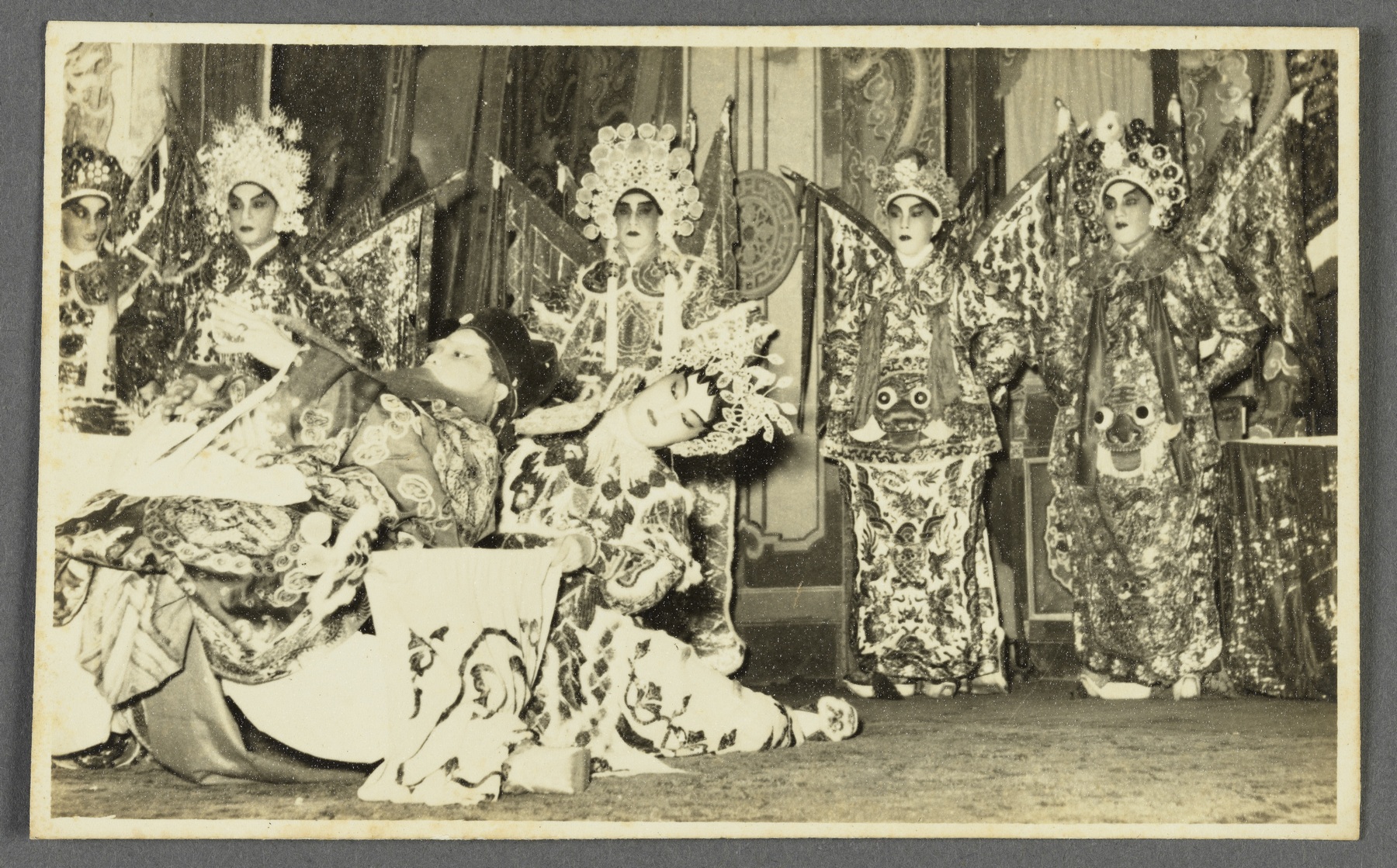 |
|
White Sequined Costume for Ladies 1950s to 1970s |
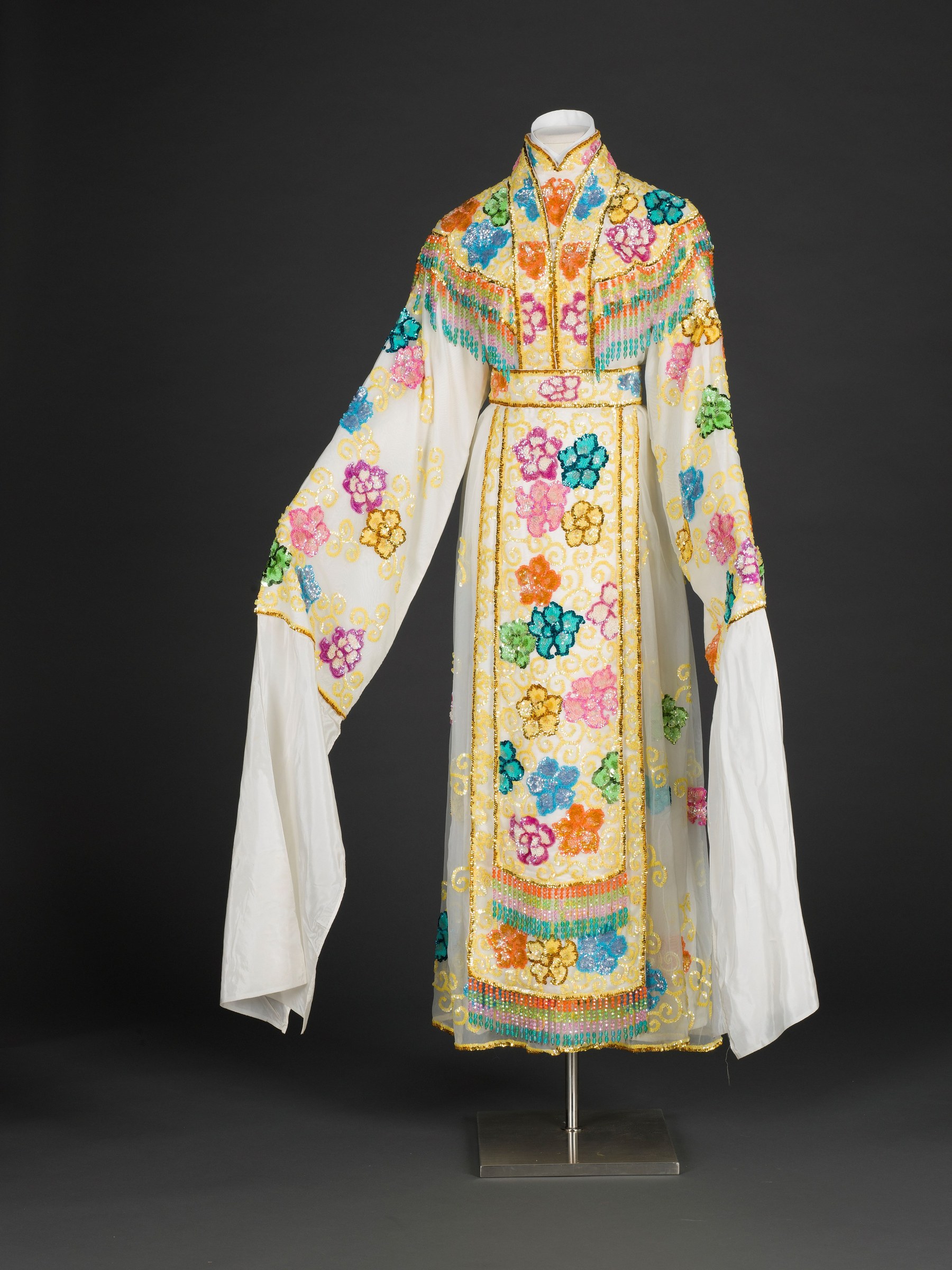 |
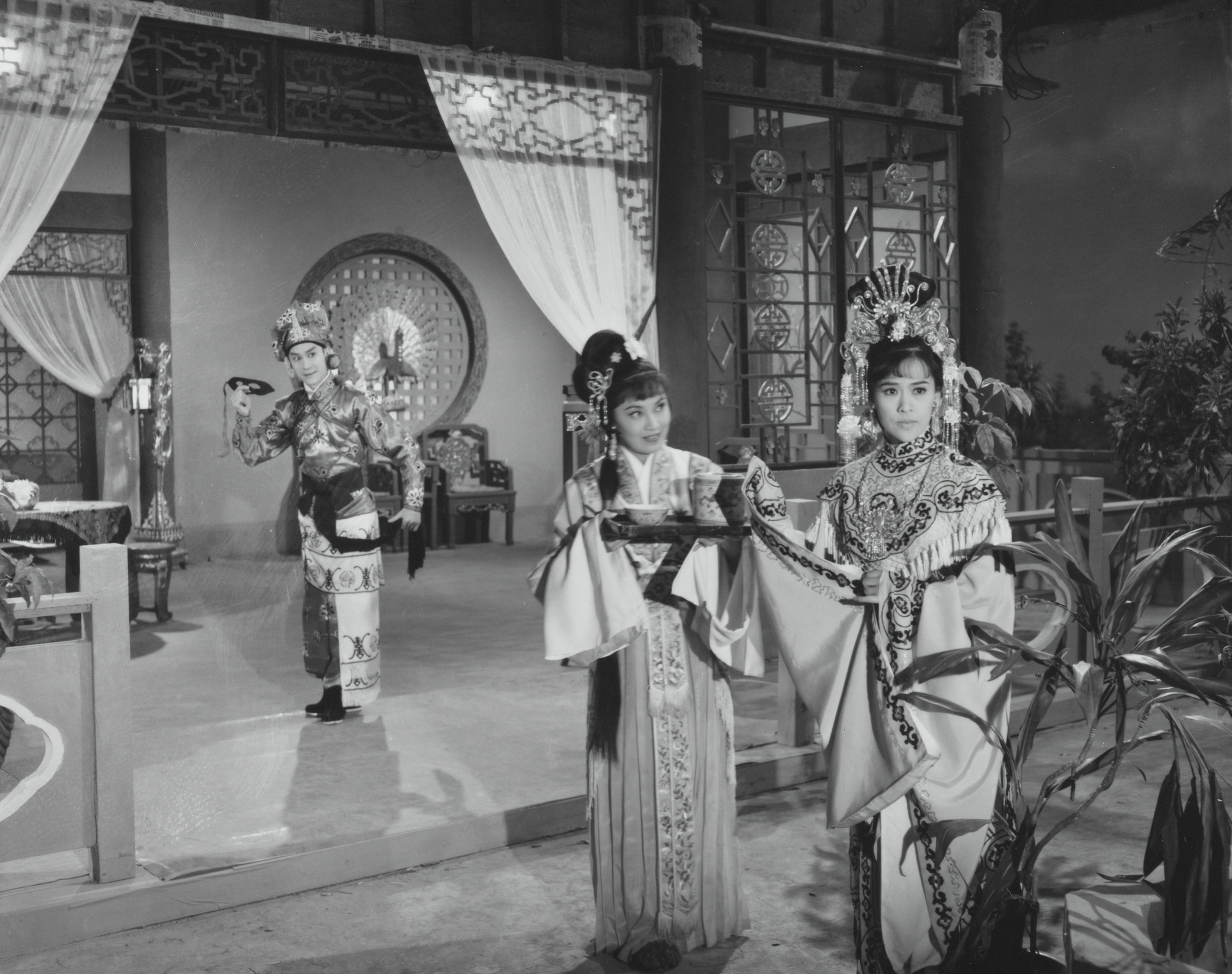 |
A Scene from the Film Uproar in Jade Hall Premiered on 8 February 1967 |
|
A Scene from the Film The Country Bumpkin Premiered on 21 February 1974 |
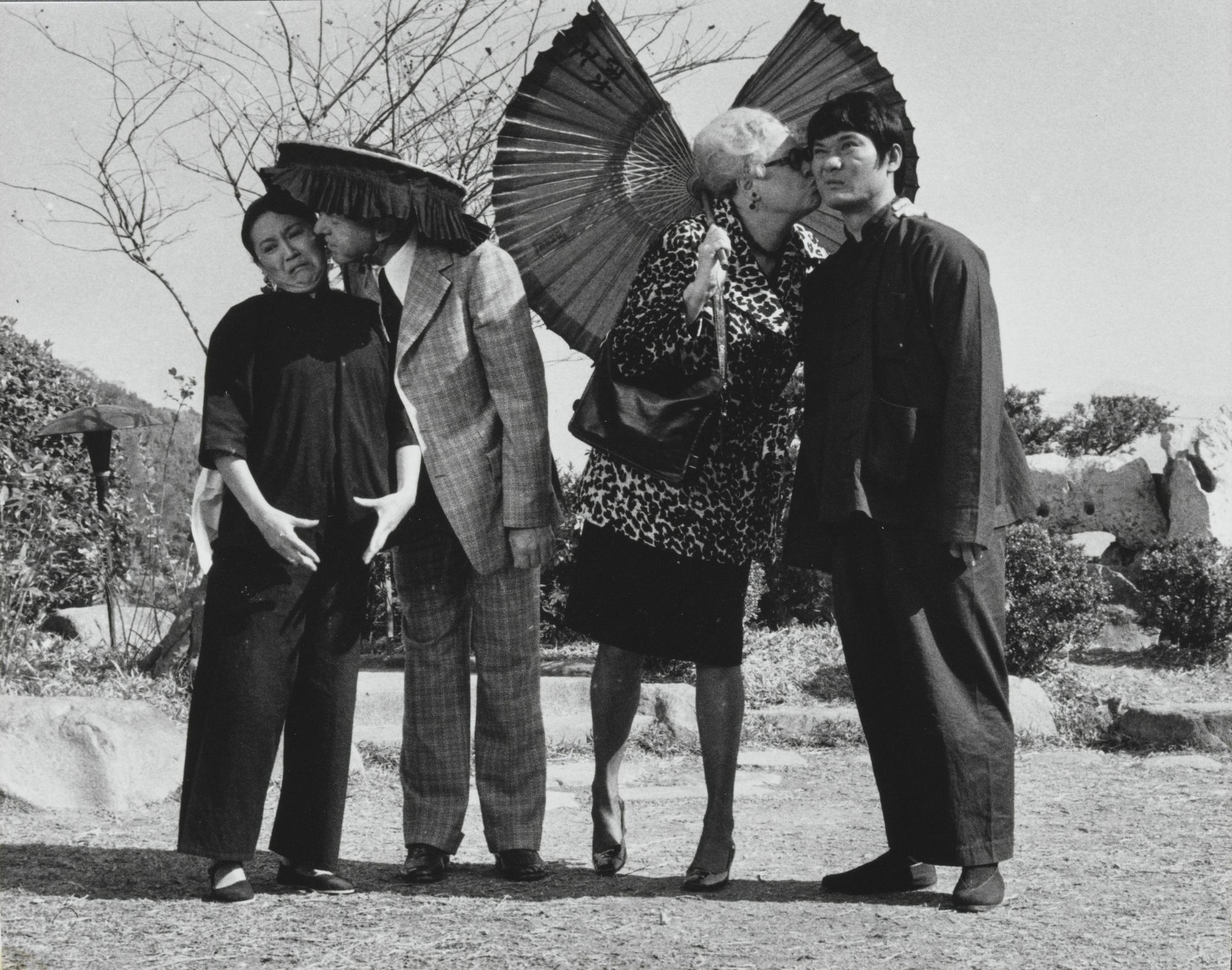 |





